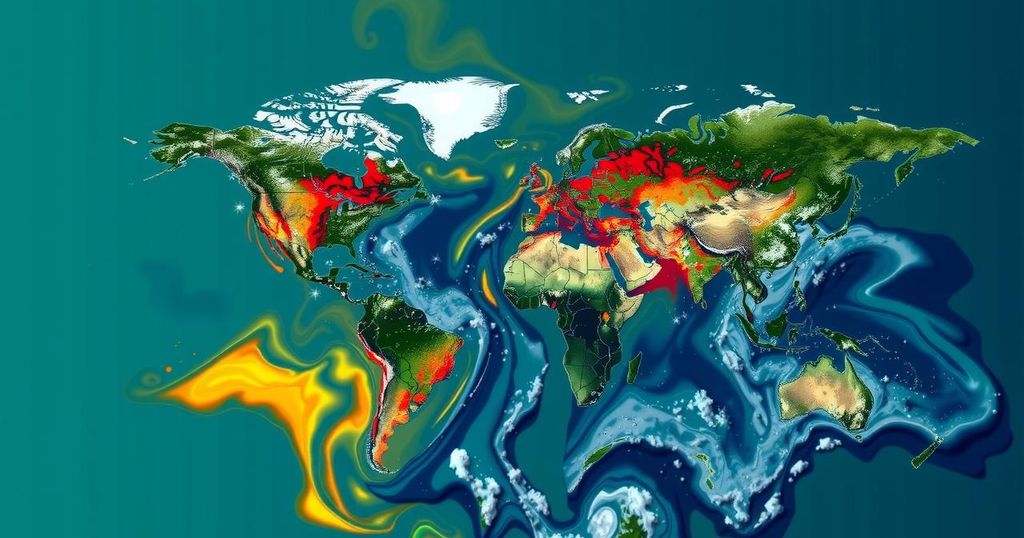Week in Review: Top Climate News Highlights (October 14-18, 2024)

This week’s climate news reveals that only 2.8% of the world’s oceans are effectively protected, as reported ahead of the UN Biodiversity Conference. Political politicization of disaster aid under the Trump administration has raised concerns. Research indicates climate change exacerbated recent deadly floods in Nepal. Google is investing in nuclear energy for its data centers, while a meteorologist’s emotional response to climate impacts reflects widespread concern among youth about climate change.
In the week of October 14-18, 2024, a multitude of significant news related to climate change emerged. A report highlighted alarming data indicating that only 2.8% of the world’s oceans are adequately protected, starkly contrasting with global efforts initiated during the 2022 Kunming-Montreal Global Biodiversity Framework. Furthermore, political dynamics played a role in disaster aid appropriations from the Trump administration, previously accused of selectively granting aid based on state political affiliations. A recent study linked human-induced climate change to the severity of floods in Nepal, underscoring the intensifying impacts of extreme weather events. Meanwhile, Google made a groundbreaking move towards nuclear energy for its data centers, commissioning modular reactors aimed at reducing carbon emissions. A U.S. meteorologist expressed profound distress regarding climate inaction, reflecting a broader sentiment among American youth who reported high levels of anxiety related to climate issues—emphasizing an urgent need for comprehensive climate action across all sectors.
This report compiles various noteworthy developments pertaining to climate change from the past week. Key issues include global biodiversity efforts focusing on ocean conservation, the political implications of climate-related disaster aid, the increasing frequency of extreme weather events linked to climate change, corporate initiatives towards sustainable energy sources, and the emotional distress stemming from the climate crisis among younger demographics. Understanding these interconnected themes emphasizes the urgent nature of the climate crisis and the varied responses it evokes on both political and personal levels.
In conclusion, the information presented this week highlights critical areas of concern regarding climate change and its consequences. From the inadequacy of marine protections to the unsettling political maneuvering surrounding disaster aid—further exacerbated by climate change-related disasters—it becomes clear that immediate and robust action is imperative. The enterprise of integrating nuclear energy by corporations such as Google reflects an innovative approach to address energy demands sustainably. Finally, the psychological effects of climate change on youth signify a pressing need for enhanced communication and education surrounding climate action. Collectively, these narratives stress the urgency for multisectoral collaboration and significant public engagement in combating climate issues.
Original Source: earth.org








